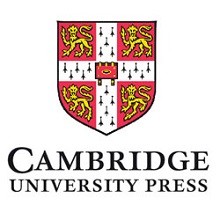
تهاجم های زیستی و تنوع زیست فرهنگی: اتصال سیستم های اکولوژیکی و فرهنگی
خلاصه
مطالعه ی اثرات اکولوژیکی و اقتصادی گونه های مهاجم، تاثیر فراگیری در سرتاسر جهان دارد اما تاثیرات فرهنگی آن ها هنوز به مقدار زیادی بررسی نشده و بنابراین تشخیص داده نشده باقی مانده است. برخلاف سیستم های زیستی، هرجا که پیامدهای اکولوژیکی تهاجم های زیستی در وهله ی اول منفی باشد، از نقطه نظر علوم انسانی، تاثیرات گونه های مهاجم روی گستردگی سیستم های فرهنگی، محدوده ای از چندین اثر را دارد. تهاجم های زیستی، هزاران گروه فرهنگی را تحت تاثیر قرار می دهند که اغلب غیر قابل پیش گویی و در مسیرهای متناقضی است. این مطالعات موردی گروهی درون یک زمینه ی تصوری پیشنهاد کننده ی 3 گروه تاثیر فرهنگی مختلف از گونه های مهاجم است. فقر فرهنگی گونه های مهاجم، از دست رفتن یا جابه جایی گونه های بومی مهم فرهنگی و عملکردهای فرهنگی مرتبط با آن ها را تسریع می کند. غنی سازی فرهنگی گونه های مهاجم، سنت های فرهنگی را از طریق شمول آن ها در لغت نامه ها، داستان ها، غذاها، دارونامه ها و سایر فرجام های محسوس و غیرمحسوس تقویت می کند. کمک فرهنگی گونه های مهاجم می تواند پیوستگی و فرمول بندی مجدد عملکردهای مردم شناسی سنتی را فراهم کند. درک فرایندهایی که توسط آن ها بیوتای مهاجم از نظر فرهنگی غنی می شود، کمک می شود یا فقیر می شود می تواند به برنامه های درون رشته ای که هدف آن ها حفظ همزمان تنوع فرهنگی و زیستی است کمک کند.
SUMMARY
Study of the ecological and economic effects of invasive species has paralleled their progressively pervasive influence worldwide, yet their cultural impacts remain largely unexamined and therefore unrecognized. Unlike biological systems, where the ecological consequences of biological invasions are primarily negative, from an ethnoscientific standpoint, invasive species’ impacts on cultural systems span a range of effects. Biological invasions affect cultural groups in myriad, often unpredictable and at times contradictory ways. This review groups case studies into a conceptual matrix suggesting three categorically different cultural impacts of invasive species. Culturally impoverishing invasive species precipitate the loss or replacement of culturally important native species and their associated cultural practices. Culturally enriching invasive species augment cultural traditions, through their inclusion in lexicons, narratives, foods, pharmacopoeias and other tangible and intangible ends. Culturally facilitating invasive species can provide continuity and reformulation of traditional ethnobiological practices. An understanding of the processes by which invasive biota become culturally enriching, facilitating, or impoverishing can contribute to articulating interdisciplinary programmes aimed at simultaneously conserving biological and cultural diversity.
خلاصه
مقدمه
تهاجمات زیستی و چشم اندازهای فرهنگی
غنی سازی و کمک فرهنگی
تاثیرات فرهنگی مخلوط
نگرانی های فرهنگی مدرن
نتیجه گیری
SUMMARY
INTRODUCTION
HISTORICAL FRAMEWORK
BIOLOGICAL INVASIONS AND CULTURAL LANDSCAPES
Cultural enrichment and facilitation
Mixed cultural impacts
Modern cultural concerns
CONCLUSIONS
ACKNOWLEDGEMENTS
- اصل مقاله انگلیسی با فرمت ورد (word) با قابلیت ویرایش
- ترجمه فارسی مقاله با فرمت ورد (word) با قابلیت ویرایش، بدون آرم سایت ای ترجمه
- ترجمه فارسی مقاله با فرمت pdf، بدون آرم سایت ای ترجمه
